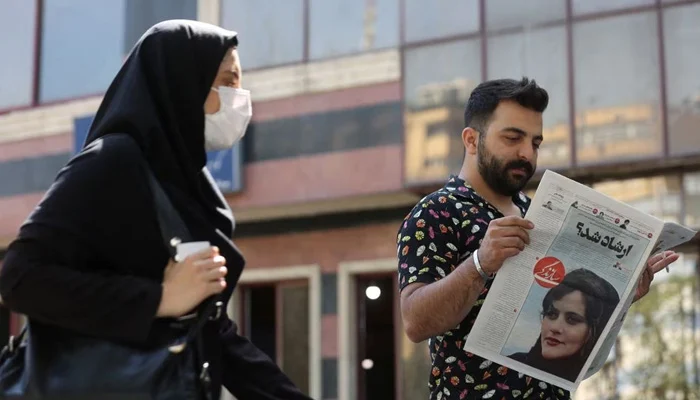With the anniversary Mahsa Amini protests around the corner, the Iranian authorities are mulling to impose a new, harsher hijab law that experts fear would bring unprecedentedly extreme punitive modifications to the law, CNN reported.
Last year, the nationwide deadly protests sparked by the death of a 22-year-old model from Iran’s Kurdistan region rocked the middle eastern country.
Amini died in detention of the country’s infamous morality police for allegedly donning “inappropriate attire” in September 2022.
The authorities submitted the 70-article draft law, which sets out a range of proposals, including “much longer prison terms for women who refuse to wear the veil, stiff new penalties for celebrities and businesses who flout the rules, and the use of artificial intelligence to identify women in breach of the dress code”.
Experts believe the bill was a warning to Iranians that the regime stays adamant on its stance on the hijab despite the nationwide protests that staggered the country last year.
As per a report by state-aligned news agency Mehr, the proposal has received the nod from Iran’s Legal and Judicial Commission and is set to submit to the Board of Governors on August 6 before its tabling in the parliament.
It is “a clear response to the protests from September of last fall,” CNN quoted Sanam Vakil, director of the Middle East and North Africa program at the Chatham House think-tank in London as saying.
She said that the proposed law is a bid to “reassert authority over veiling and the requirements expected of women.”
Extreme punitive measures
The Hijab, which has long been a point of contention in Iran, was barred in 1936 during leader Reza Shah’s emancipation of women.
The hijab ban was lifted by Shah’s successor in 1941, later to be made mandatory in 1983 following the ouster of the last shah in the 1979 Islamic Revolution.
The new bill defines “clothes that show a part of the body below the neck or above the ankles or above the forearms” and clothes that are “revealing or tight” as a violation of hijab.
Under the current “hijab law”, a breach of the dress code is punishable by 10 days to two months imprisonment, or a fine ranging from 50,000 to 500,000 Iranian rials ($1.18 to $11.82).
The new bill would reclassify failure to wear the hijab as a more severe offense, punishable by a five-to-ten-year prison sentence as well as a higher fine of up to 360 million Iranian rials ($8,508), which Iranian human rights lawyer Hossein Raeesi says is far beyond the affordability of an average Iranian.
Another section of the draft law states that the Iranian police must “create and strengthen AI systems to identify perpetrators of illegal behavior using tools such as fixed and mobile cameras.”
The proposed legislation would also require more gender segregation in colleges, which are often sites of civil unrest, and other public places.
Moreover, the new law proposes to impose steeper penalties on business owners who are lenient towards hijab-wearing — potentially amounting to three months of their business profit, travel bans, and restraints on participating in public or cyber activity for up to two years.
Similar punishments have been proposed for celebrities who violate the law.
Experts believe the legislation, or parts of it, is likely to pass in some form as most members of parliament are regime-aligned and unlikely to block it.
In case the bill is passed, it will then have to get the approval of the regime’s Guardian Council to become a law, Raeesi said.
A 12-member council is responsible to ensure that the legislations fall in line with the Iranian constitution.



Comments are closed.